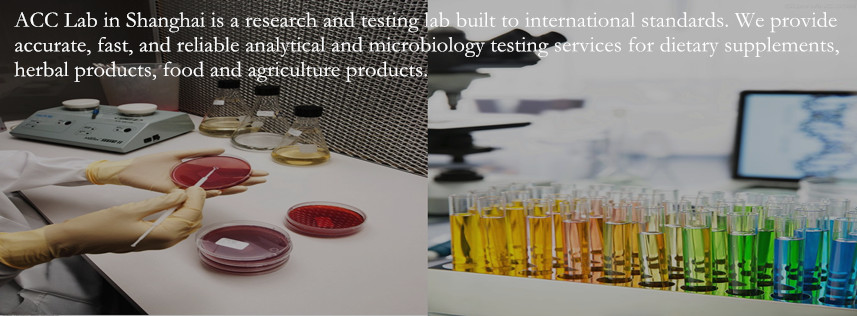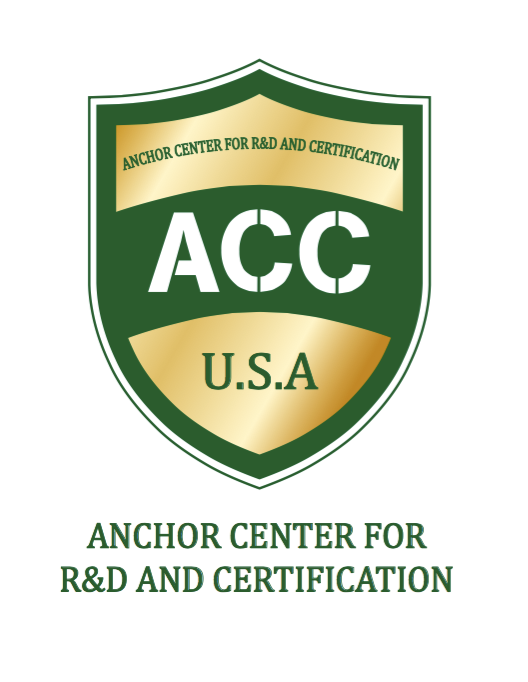
ACC provides testing and analysis services to the global food industry. We can help you implement comprehensive food safety and quality strategies, and achieve compliance with local, national and international regulations.
Food testing is integral to the efficient production of safe, quality products. Testing to ensure compliance with food safety regulations and to protect public health, is a must.
We use the cutting-edge methods and technology, to assess risks, improve quality, efficiency, and add value to the market.
1)Food Nutritional Label Testing Services
Accurate nutritional analysis is essential to ensure comliance with labeling regulations and retailer specifications. Understanding nutritional content is also an intrinsic part of product development and quality control. ACC can ensure that you meet all regulatory requirements concerning nutritional declarations and avoid delays in getting your products to market.
We conduct nutritional analysis and labeling reviews for all your pre-packaged food products. Our state-of-the-art facilities are equipped to determine values for all mandatory and voluntary measures including calorie, carbohydrate, fat, protein and fiber content, as well as for vitamins and minerals.
In addition to our expert analytical services, our expert panels ensure up-to-date regulations and methodologies will always be applied in our services to accurately guide you through the nutritional testing and labeling requirements for your target markets.
Item | Label claims |
Energy | |
Protein | Contents of protein |
Fat | Contents of fats, saturated fat, unsaturated fat, trans-fat, cholesterol |
Carbohydrates | Contents of carbohydrates, sugar, reduced sugar, sucrose, maltose, lactose, fructose, glucose |
Fiber | Total fiber, soluble fiber, non-soluble fiber |
Minerals | Sodium, calcium, iron |
Vitamins | Vitamin A, Vitamin B1, Vitamin B2, Vitamin B3, Vitamin B6, Vitamin C, Vitamin D2, Vitamin D3, Vitamin E |
2) Routine physical and chemistry test
In addition to nutritional label testing, ACC also offers routine physical and chemistry tests as shown below:
Routine physical and chemistry test | |||||
Water | Ash | Saponification index | Water-insoluble | Aqueous extract | Insoluble in water |
Density | Free fatty acid | Conductivity |
MSG | pH value | Insoluble in oil | |||
Acidity | Starch | Refraction index | Sulfur dioxide | Unsaponifiable matter | Crude fiber |
Caffeine | Acid value | Total nitrogen | Peroxide value | Chlorine | Sulfate |
phosphor | VOC | Iodine value | Alcoholic concentration | Polyphenol |
3) Food Safety Testing Services
Contamination of food products can cause tremendous harm to consumers and brand reputation. Manufacturers and distribution channels play an important role and have responsibilities to follow food safety guidelines and to ensure consumer safety.
ACC understands these problems and through our state-of-the-art laboratory facilities and testing methods, we can help you with a range of microbiological, physical and chemical contamination testing.
4) Food Microbiological Testing Services
ACC is a partner that you can trust for you Food Microbiological Testing. With our experiences, expertise and cutting-edge facilities, you can ensure that your customers and brand are protected, and that you fully comply with all relevant food safety regulations.
From our state-of-the-art laboratory facilities, our world-class microbiologists test for the full range of potentially harmful food-borne micro-organisms, including pathogens like E.coli, Listeria, and Salmonella, along with spoilage organisms such as Yeasts and Moulds.
Our specialists can also develop and carry out shelf-life and challenge testing for your products. To ensure that products are safe once they reach the market, our testing services help to determine if food is safe to consume and free from harmful micro-organisms; testing the full product life cycle including once the packaging has been opened.
In ACC, we constantly review and update our microbiology testing methodologies to keep pace with the ever evolving threats posed by food-borne micro-organisms. This ensures that you consistently deliver safe and quality products to your customers.
Item | Content |
Non-pathogenic Bacteria | Total plate count, Coliforms, E.coli, Total fungal, Yeast, Lactobacillus |
Pathogenic Bacteria | E.coli O157:H7, Salmonella, Shigella, Staphylococcus aureus, Listeria monocytogenes, Vibrio parahaemolyticus, E.sakazakii |
5) Chemical contamination testing services
a) Pesticides
Using pesticides, fungicides and herbicides bolsters crop resistance to disease and pests, increases yields and improves quality. However, overuse can lead to the accumulation of harmful chemical residues and cause pest resistance. This can have an impact on the environment and can be harmful to humans and animals if allowed to enter the food chain.
As a consequence, concentrations of pesticides, fungicides and herbicides in food and animal feed are strictly controlled. Food producers are responsible for the safety and quality of their products. To protect your business and mitigate the risk of negative health impacts, you need to comply with the relevant regulations to reduce levels of harmful pesticides, fungicides and herbicides in the food chain.
ACC provides expert trace residue testing and analysis services, ensuring that your products meet the standards. Quality in ACC goes beyond scientific excellence and correct results. Process optimization now allows for very fast turn-around times.
Products tested for pesticides, fungicides and herbicides in the following matrice:
•Fresh fruits and vegetables
•Dried fruits (incl. concentrates, powders etc.)
•Fruit juices and concentrates
•Tea, Coffee, Cacao
•Cereals
•Rice
•Beverages, Wine and spirits
•Herbs & Spices
•Dairy products
•Fats and Oils
•Drugs
•Feed
•Honey
b) Veterinary drug residues
Veterinary drugs residues are used within animal husbandry to cure and prevent diseases, and also to increase weight gain and tranquilize during transportation.
Veterinary drugs are a complex group of substances with a couple of hundred actives belonging to different chemical classes and therapeutic areas, e.g. antibiotics, antiparasitics, non-steroidal anti-inflammatory drugs.
ACC offers the most comprehensive range of screening methods from single substance testing to risk-orientated multi-class testing for the full range of veterinary drug residues in trace amounts.
ACC tests all relevant matrices for veterinary residues:
•Meat and meat products
•Poultry
•Egg and egg products
•Honey
•Milk and milk products
•Ready Meals
6) Heavy metal testing services
Heavy metals, like arsenic, cadmium, lead, and mercury are all considered toxic and have adverse health effects in human metabolism. Main intake sources of heavy metals are fish and seafood, fruits and vegetables, nuts and cereals. In the case of lead, drinking water is also of major importance. Since the toxicological effects of heavy metals and arsenic on babies and infants are of special relevance, the safety of baby food is also in the spotlight.
Toxicology
•Lead has a very low acute toxicity. Most essential long-term effects are its neurotoxicity for infants and its effects on the cardiovascular tissue of adults.
•Cadmium is primarily nephrotoxic and may cause bone demineralisation.
•Mercury mainly occurs as methyl mercury in fish and seafood, and is extremely toxic on the nervous system. Other foods usually contain less toxic inorganic mercury.
•Arsenic also occurs in organic and inorganic compounds, of which the latter is clearly more toxic and may cause cancer of skin, lungs and the urinary tract.
Regulatory bodies around the world have set maximum limits for lead, cadmium and mercury in different food groups such as meat, fish, seafood, cereals, vegetables, fruits and products thereof, fats and oils, milk, baby food and infant formula.
ACC tests all relevant matrices for heavy metals:
•Fish and vegetable oils
•Meat
•Dairy products (milk, baby milk, cheese etc.)
•Cereals
•Vegetables
•Fruit
•Wines and alcoholic beverages
•Soft drinks
•Dietary supplements


